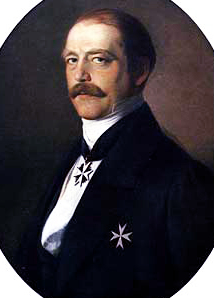Pius ( /ˈpaɪəs/ PY-əs, [1] Latin: [ˈpiːʊs] ; Latin for 'pious') is a masculine given name. Its feminine form is Pia.
Contents
It may refer to:
Pius ( /ˈpaɪəs/ PY-əs, [1] Latin: [ˈpiːʊs] ; Latin for 'pious') is a masculine given name. Its feminine form is Pia.
It may refer to:

Titus Aelius Hadrianus Antoninus Pius was Roman emperor from AD 138 to 161. He was the fourth of the Five Good Emperors from the Nerva–Antonine dynasty.
December 25 is the 359th day of the year in the Gregorian calendar; six days remain until the end of the year.
December 11 is the 345th day of the year in the Gregorian calendar; 20 days remain until the end of the year.
January 18 is the 18th day of the year in the Gregorian calendar; 347 days remain until the end of the year.

Marcus Aurelius Antoninus was Roman emperor from 161 to 180 and a Stoic philosopher. He was a member of the Nerva–Antonine dynasty, the last of the rulers later known as the Five Good Emperors and the last emperor of the Pax Romana, an age of relative peace, calm, and stability for the Roman Empire lasting from 27 BC to 180 AD. He served as Roman consul in 140, 145, and 161.
October 5 is the 278th day of the year in the Gregorian calendar; 87 days remain until the end of the year.
September 2 is the 245th day of the year in the Gregorian calendar; 120 days remain until the end of the year.
The 140s decade ran from January 1, 140, to December 31, 149.
The 160s decade ran from January 1, 160, to December 31, 169.

Pope Telesphorus was the bishop of Rome from c. 126 to his death c. 137, during the reigns of Roman Emperors Hadrian and Antoninus Pius. He was of Greek ancestry and born in Terranova da Sibari, Calabria, Italy.
Julia is a usually feminine given name. It is a Latinate feminine form of the name Julio and Julius. The given name Julia had been in use throughout Late Antiquity but became rare during the Middle Ages, and was revived only with the Italian Renaissance. It became common in the English-speaking world only in the 18th century. Today, it is frequently used throughout the world.
Pope John XIII was the bishop of Rome and ruler of the Papal States from 1 October 965 to his death. His pontificate was caught up in the continuing conflict between the Holy Roman emperor, Otto I, and the Roman nobility. After long and arduous negotiations, he succeeded in arranging a Byzantine marriage for Otto II, in an effort to legitimize the Ottonian claim to imperial dignity. He also established church hierarchy in Poland and Bohemia.

Otto is a masculine German given name and a surname. It originates as an Old High German short form of Germanic names beginning in aud-, an element meaning "wealth, prosperity".
The first name Konstantin is a derivation from the Latin name Constantinus (Constantine) in some European languages, such as Greek, Russian, Estonian and German. As a Christian given name, it refers to the memory of the Roman emperor Constantine the Great. A number of notable persons in the Byzantine Empire, and in Russian history and earlier East Slavic history are often referred to by this name.

The papal conclave held from 31 July to 4 August 1903 saw the election of Cardinal Giuseppe Melchiorre Sarto to become pope in succession to Leo XIII, who had died on 20 July after a 25-year-long pontificate. Some 62 cardinals participated in the balloting. Emperor Franz Joseph of Austria asserted the right claimed by certain Catholic rulers to veto a candidate for the papacy, blocking the election of the leading candidate, Cardinal Secretary of State Mariano Rampolla. Sarto was elected on the seventh ballot and took the name Pius X.
Antoninus is a Latin masculine given name. It may refer to:
Johannes is a Medieval Latin form of the personal name that usually appears as "John" in English language contexts. It is a variant of the Greek and Classical Latin variants, itself derived from the Hebrew name Yehochanan, meaning "Yahweh is gracious". The name became popular in Northern Europe, especially in Germany because of Christianity. Common German variants for Johannes are Johann, Hannes, Hans, Jens and Jan. In the Netherlands, Johannes was without interruption the most common masculine birth name until 1989. The English equivalent for Johannes is John.

The Temple of Antoninus and Faustina is an ancient Roman temple in Rome, which was later converted into a Roman Catholic church, the Chiesa di San Lorenzo in Miranda or simply "San Lorenzo in Miranda". It is located in the Forum Romanum, on the Via Sacra, opposite the Regia.

Appia Annia Regilla, full name Appia Annia Regilla Atilia Caucidia Tertulla, was a wealthy, aristocratic and influential Roman woman, who was a distant relative of several Roman emperors and empresses. She was the wife of the prominent Greek Herodes Atticus.
March 7 is the 66th day of the year in the Gregorian calendar; 299 days remain until the end of the year.